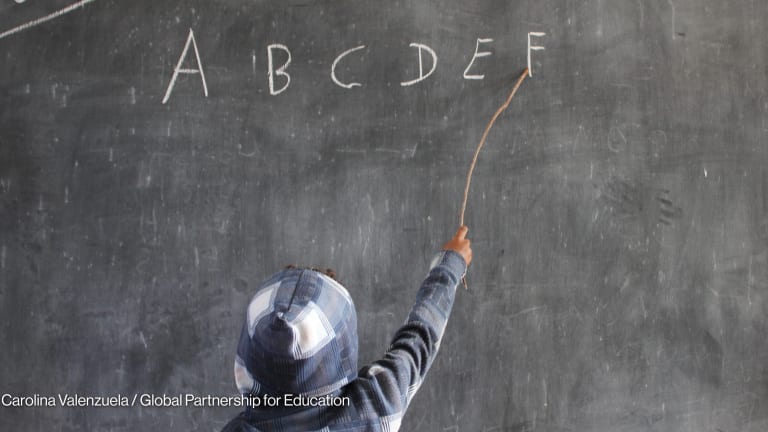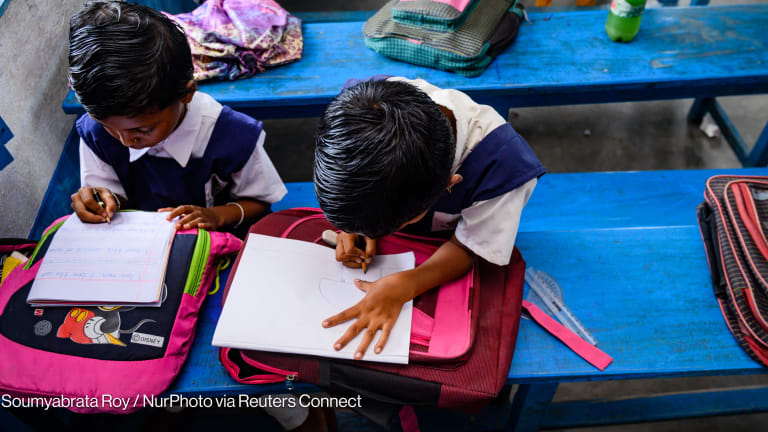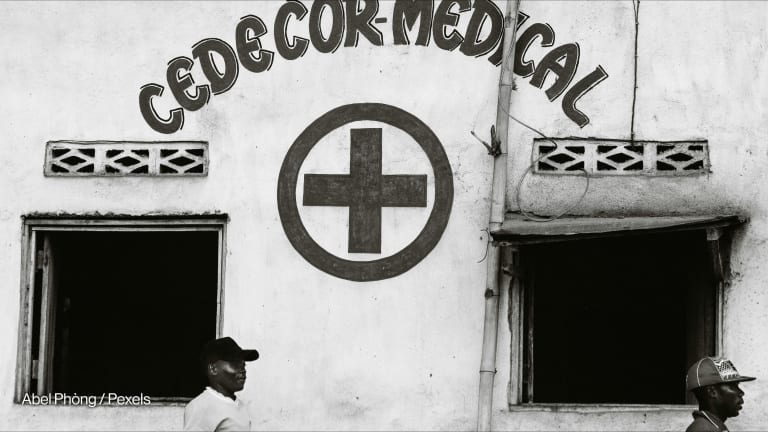
People around the world know that education is the key to a better life. Voters from over 190 countries who responded to the United Nations My World survey said providing a good education for all was the best way to build a better world. But there’s a huge gap between that goal and reality: 250 million children are still being denied a chance to learn the basics.
This week, as world leaders gather in New York for the opening of the U.N. General Assembly, they have a chance to bridge that gap by putting education at the top of their list of global priorities to pursue after the 2015 deadline for the Millennium Development Goals.
To provide concrete evidence why they should do so, UNESCO’s Education for All Global Monitoring Report team has released a new report demonstrating education’s powerful role in transforming lives. The report was launched at an event in New York where Mariam Khalique, teacher to Malala Yousafzai, spoke about the importance of education for girls and young women in Pakistan.
“I remember when it was announced on the radio that girls would not go to school,” said Khalique, recalling the infamous decrees issued by Taliban militants. But despite these threats many girls went anyway, supported by their teachers who told them to leave their uniforms at home and hide their school bags under their shawls. “We saw the freedom that education gave us and it made us stronger. That is why they wanted to take it away.”
There are few more dramatic illustrations of the power of education than the estimate that the lives of 2.1 million children under 5 were saved between 1990 and 2009 because of improvements in girls’ education.
Educated mothers are not only able to recognize their child’s symptoms and seek treatment, but are also more likely to understand and carry out preventive measures. Numerous agencies supply insecticide-treated bed nets to counter malaria, for example, but mothers are unlikely to use the nets effectively to unless they understand how they protect children from mosquitos that carry the disease.
The case for more education
The benefits of education can be huge. The new report shows that ensuring all women in poor countries complete primary school — helping them to spot warning signs and seek treatment for their children when ill — would save almost a million lives year. If they all had secondary education, child mortality rates would be cut in half, saving three million lives.
Droughts cannot be prevented, but education has a crucial role in helping communities prepare for them and thus avoid famines. The report notes that providing all women with a secondary education could save more than 12 million children from one of the lifelong consequences of malnutrition, like being stunted.
Education is also vital to foster the tolerance and trust that underpin democracy and avert conflicts. In the Arab world, for example, people with a secondary education are 14 percent more likely than those with just a primary education to be tolerant towards people of different religions. In Latin America and the Caribbean, people with secondary education are 32 percent tolerant of homosexuals.
Despite this clear evidence of education’s benefits, it has slipped down the global agenda since the world’s development goals were set in 2000, and children are paying the price. Developing nations are bearing the brunt of drastic cuts in aid for education — six of the 10 largest bilateral donors reduced aid to basic education between 2010 and 2011. The gap in annual financing needed to ensure basic education for all has widened to $26 billion.
Policy-makers and donors sometimes overlook the importance of education because the benefits of quality schooling are often invisible. That’s why the EFA Global Monitoring Report team has drawn together clear and convincing evidence of education’s considerable power to transform lives and societies.
If world leaders meeting in New York want to guarantee that the goals they draft for the world after 2015 are more than just dreams, quality education for all must beat the top of their list.
You can follow Devex on Twitter and Facebook, and find comprehensive coverage of New York #globaldev Week here.
Join the Devex communityand gain access to more in-depth analysis, breaking news and business advice — and a host of other services — on international development, humanitarian aid and global health.








